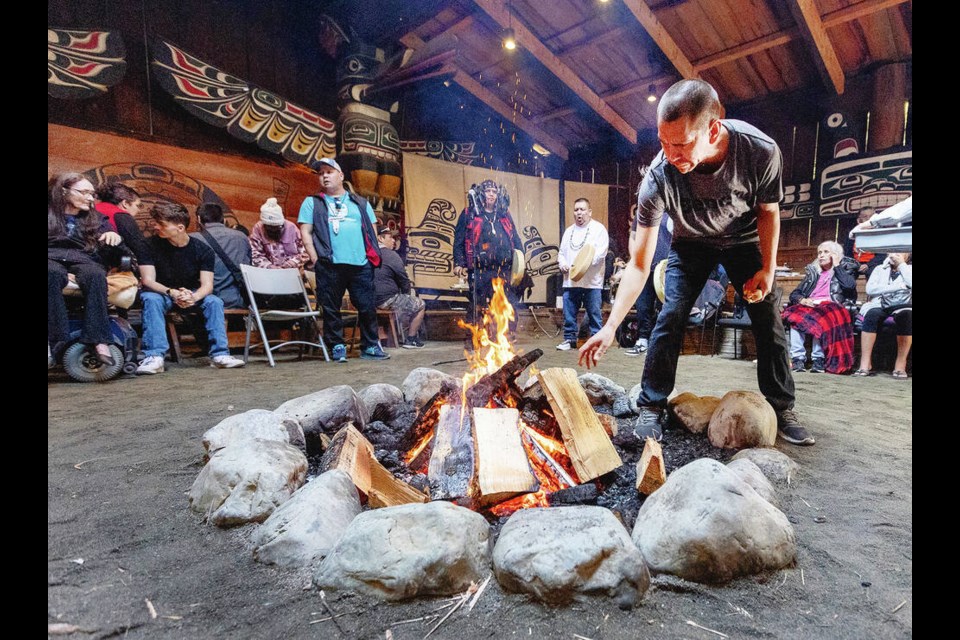Bernice Kamano has been trying to bring Victoria’s urban Indigenous and unhoused population back in touch with their culture for several decades.
Having grown up in foster care, Kamano — who is Da’naxda’xw and has Heiltsuk heritage through her father — knows first hand how important it is to stay connected to your roots.
Her eyes became alive when she recalled the first time she attended a potlatch in Alert Bay. “It was like I had never seen culture before,” she said.
Many of the Indigenous people living on the streets in Victoria are often disconnected from their families and their nations, Kamano said.
“They miss out on this beautiful part of our culture that just gives them strength, power and acknowledgement of who they actually are.”
Indigenous outreach workers from half a dozen social agencies worked together to bring some of that feeling into downtown Victoria on Monday afternoon.
Inside Mungo Martin House, the smell of smoke and seafood chowder mingled in the air for about 100 people who gathered for six hours of dancing and drumming by Coast Salish, Nuu-Chah-Nulth and Kwakwaka’wakw groups.
David Mungo Knox, a Kwakiutl hereditary chief and great-grandson of Mungo Martin, said it was important for him to allow the event to take place in Mungo Martin House. “To be connected with culture — it’s everything,” he said.
It’s important for Vancouver Island’s three nations to come together and uplift those who live off-reserve, he said. “I’m honoured to be here to witness this feast.”
Lacey Jones, the program director for QomQem, an Indigenous-led outreach program, said Monday’s event only happened with the help of an Indigenous outreach worker network that was created out of the COVID-19 pandemic. “We came together as native outreach workers to be able to really find ways to get back to people.”
On Monday, Indigenous outreach workers combed the city with shuttle buses to bring people to the free event.
Jones, who is from the Snuneymuxw First Nation, said it’s important for people to be able to spend the day without being stigmatized or stereotyped.
There are few places in the city where unhoused Indigenous people can receive culturally relevant support, she said.
Kamano, an outreach co-ordinator with Portland Hotel Society, agreed. “We need something like that in Victoria, where we can go and support people,” she said.
“And bring food, do housing paper work, sit with elders, and get appointments booked,” Jones added.
>>> To comment on this article, write a letter to the editor: [email protected]




